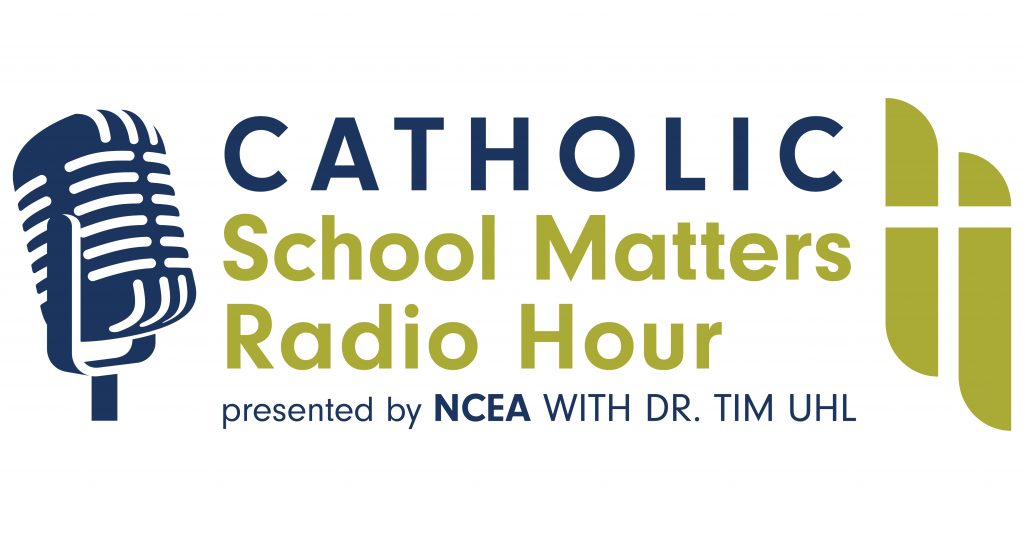I know that the current abuse/leadership crisis is sucking all the oxygen out of the room. If you want to learn more, I recommend this podcast, these resources from Bishop Barron, and this reflection from Archbishop Gomez. But we need to turn our attention to issues and events surrounding Catholic schools in order to improve our professional practice.
As I mention below in the monthly book club section, I’ve become interested in deliberate practice which has changed my thinking about how we train and form our leaders. The reason is simple—issues and controversies emerge in Catholic education and we don’t learn from them. Why not? First, often our leaders simply punt tough questions to superintendents, pastors, and bishops. Leaders see themselves as policy enforcers and compliance experts, not moral leaders of their communities. Second, during and after the controversies, there is no transparency and accountability. Those involved don’t share the struggles and lessons. There’s no postmortem for us all to learn from often because lawyers tell them to remain silent. In public education, for example, there would be more public accounting.
So the cycle continues—leaders are not shaped by past controversies because people are silent. And then they feel unprepared and thus simply default decision-making authority to their superiors. Here are a few controversies which emerged over the summer:
- In Indianapolis, a guidance counselor at a Catholic high school was placed on paid leave after it was discovered she had married her partner.
- In the Archdiocese of New Orleans, an African-American student was removed for violating the school’s hair policy. She sued the Archdiocese and now the Archdiocese has pledged to adopt a newer culturally-sensitive hair policy.
- The School Board at Cardinal Wuerl North Catholic High School outside Pittsburgh voted to removed the “Cardinal Wuerl” from its moniker after the former bishop was implicated in the Pennsylvania grand jury report. The school had only adopted the “Cardinal Wuerl” designation in 2013.
- The Archdiocese of Baltimore decided not to name its new downtown Catholic school (scheduled to open in 2019 or 2020) Cardinal Keeler School but rather Mother Lange Catholic School after Cardinal Keeler was implicated in the abuse scandals as well.
These scenarios are worth considering. Put yourself in the shoes of each party. For instance, what was life like as the guidance counselor? Her daughter? Or, try imagining yourself as Cardinal Wuerl or as the principal of the high school. Then look at how the situations unfolded and ask yourself how you might have acted differently. And then what principles will you bring forward as you face your own controversies? This will force you to confront the meaning of church, the meaning of community, the role of ideological purity, and how we honor differences of opinion.
These exercises will bring us into uncomfortable situations where we might be advocating positions that will draw fire from outspoken critics. Yet in the past week alone the pope advocated for 8 minute homilies and 40 minute Masses and Cardinal Dolan opened the door for questioning clerical celibacy. If we are allowing only our popes and cardinals to question traditions and doctrine while remaining silent as lay people, we are perpetuating the same clericalism which is the root of many of our problems.
In other news, new schools opened in the following locations:
- Jeanne Lestonnac HS opened in Temecula, California with 35 freshman and sophomores.
- New Cristo Rey high schools opened in Oklahoma City, Fort Worth, and Oakland. Five more schools are in development (Las Vegas, Miami, Richmond, San Diego, and Raleigh).
- John Paul II High School opened in west Phoenix.
- Epiphany Catholic School in Katy, Texas.
- Ozark Catholic Academy in northwest Arkansas.
- Pope Francis High School in Springfield (MA) opened its new building.
This is promising news. I’ve heard of at least two other schools in development, including one for students battling addiction in the Diocese of Allentown. However, over the summer, a Catholic school was closed in New Jersey, one in Massachusetts, and another in San Antonio on top of the approximately 20 school closure announcements which came last spring. A school burned down int the Philadelphia area. These are difficult times and unless we are willing to train and form our leaders more effectively, the current (downward) enrollment trend may continue.
This issue is laser focused on Catholic schools and its leadership challenges. As questions about power, accountability, and transparency swirl, we are challenged to apply lessons from this crisis. We are challenged to create collaborative decision-making cultures. We are all challenged to think about what being part of the Church involves—what part does dissent have? How important is ideological purity? Which comes first, doctrine or people? These are not easy questions and there is certainly no easy answers.
My top 5:
- Read about the newly opened Cristo Rey high schools in Oklahoma City, Fort Worth, and Oakland. Five more schools are in development (Las Vegas, Miami, Richmond, San Diego, and Raleigh).
- I’ve heard of at least two other schools in development, including one for students battling addiction in the Diocese of Allentown. I’ll have the school’s founder on the podcast in a couple of months.
- Finally if you want to make sure you aware of all the developments in this current crisis, I recommend this podcast, these resources from Bishop Barron, and this reflection from Archbishop Gomez.
This week, I’m off for a tour of Indian Catholic schools and sacred sites. Want to join me next September? Email me to reserve a spot in the van. Have a great week!
Have a great week!
Tim
